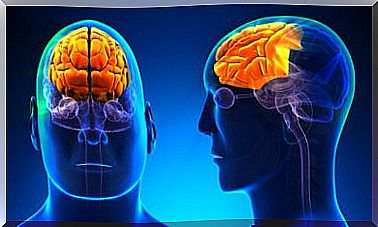What Neuroscience Says About Procrastination

In the last 10 years, remarkable progress has been made in the study of the brain. The current moment is listed as one of the most exciting in the history of neuroscience. They have begun to scrutinize issues that until now were not in their orbit, such as procrastination.
What does neuroscience tell us about procrastination? An important body of data has emerged that allows us to explain the processes carried out in the brain and which, apparently, determine the fact of procrastination. Although, as is known, behaviors can not only be explained from physiological processes, the truth is that these also influence them.
Procrastination is not a common behavior for everyone. Perhaps everyone has incurred these indefinite postponements at some time, but the truth is that in some people it is a chronic behavior. They have enormous difficulties in finishing what they started. Research has focused on them.
Procrastination
Procrastination names those situations in which an activity or situation that must be addressed is postponed. Frequently, it is sought to replace that activity or situation with another that is more pleasant and, generally, more irrelevant. In this way, something that is important is not addressed or concluded and is left “for later.” That “after” never comes.
All this leads to the procrastinator starting many things and not finishing them. There is a point where it is very unpleasant, or even intolerable, to start or continue with what you have to do and you look for a way to “buy time”.
A typical example of procrastination would be: a person must organize a file that he requires for his work. However, it is a task that you do not feel like at all. In addition, he understands that it will take time and perhaps in the short term he will see it as not profitable – today it takes less time to find a document than it can take to order your file. She knows that in the long run, she will buy time, but she never finds the time … She tells herself that she will do it when she has a little time, but the reality is that she never has it.

Neurosciences and procrastination
Oakland University professor Dr. Barbara Oakley has collected information about what the neurosciences say about procrastination. In principle, he points out that research on the subject pointed out that chronic procrastinators had difficulties in the neural regions associated with self-control and emotional regulation.
Adjusting the operation of these zones is possible. The problem is that doing so requires an exercise in self-control , which leads to a vicious cycle. However, this is not all that neuroscience says on the subject.
Other research in this regard indicates that procrastinators have trouble repairing their mood in the short term. They feel discomfort and do not solve it immediately. Likewise, there is a kind of separation between the perception of the present self and the future self.
Put more simply, procrastination is a form of coping that bets on the benefits that are obtained immediately.

Pain and procrastination
A more interesting hypothesis is that some people feel “pain” in the brain when doing some activity that is unpleasant for them. In those cases, a mechanism called the “default neural network” is activated to alleviate this sensation. This network is activated when a person is stuck in front of some problem to which he does not see a solution.
According to this thesis, people solve problems thanks to previously marked neural pathways. That is, the difficulty with prior learning is solved. When a person gets stuck it is because they do not have references. That’s when the default neural network kicks in and the mind starts to wander.
From this, it is concluded that the worst thing a person can do is insist on overcoming that blockage. The indicated thing is to move away from the focus of the difficulty, in other words, to rest. This helps a diffuse focus to be activated and the brain begins to work out a new route of action.
Thus, procrastination is avoided by doing something as simple as resting. If a person carries out an activity that is unpleasant for them, or against which they are blocked, it is best to take breaks whenever they feel the need to do so. In this way, it is likely that you can start or finish that task that you do not want to do so little.









